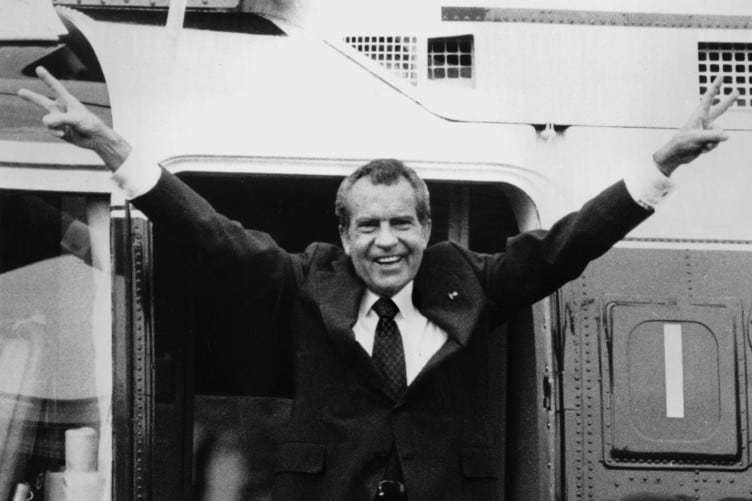Richard Nixon, the 37th President of the United States, was one of the most controversial politicians of the 20th century. For all of his admirable qualities, he was also a man with deep character flaws. His obsession with attaining power and holding onto it at all costs led to his spectacular fall from grace in the form of the Watergate scandal. This article will look a little more deeply at Nixon the man and how he contributed to his own downfall.
Richard Nixon, once said, “I have a quality that I must have inherited from my Mid-Western mother and father, which is, the tougher it gets, the cooler I get.” In fact, the exact opposite was true. According to Richard Nixon’s younger brother, Edward, Richard’s temperament more closely resembled their fathers, who would often “fly off the handle” and would have to be calmed down by their mother. This type of reaction would occur on numerous occasions throughout Richard Nixon’s political life.
Upon hearing in 1954 that the Vietnamese were rebelling against their French colonial occupiers, Nixon, who was Vice President of the United States at the time, suggested to President Eisenhower that the U.S. should send in ground troops to quell the uprising. He even went as far as suggesting the use of nuclear weaponry against the Vietnamese. Nixon feared a domino effect that other countries in the region might follow Vietnam is becoming communist states. On another occasion, when Palestinian terrorists hijacked several airplanes and landed them in Jordan, Nixon ordered the bombing of a Jordanian airfield to the shock of military advisers. Luckily, bad weather put an end to the plan.

Those closest to Nixon felt that he lacked the personality traits of a natural politician. Deep down Nixon was a shy and sensitive person. Nixon’s Secretary of State, Henry Kissinger, said that Nixon was “not gregarious and that he didn’t like to meet people, which was an unusual trait for a politician.” Kissinger says that in order for Nixon to become a politician “he had to in some respects, act against his nature, which was reclusive.”

What Nixon did have was an insatiable desire for power and becoming a politician was his means of attaining that power. Nixon was a workaholic and by the early 1950s, it was beginning to have a detrimental effect on his health. A friend lent Nixon a book called “The will to live” by Dr. Arnold Hutschnecker, a psychotherapist with a specific interest in how emotional disturbances impact health. Nixon was so impressed with the book that he made an appointment with the doctor at his practice in New York.
Nixon told Dr. Hutschnecker that lately, he had been nervous and that he was having difficulty sleeping so Dr. Hutschnecker gave Nixon a prescription and told him to come back in two weeks. Nixon visited Dr. Hutschnecker around five times in 1952 and repeatedly turned to him in times of crisis. Dr. Hutschnecker felt that Nixon was suffering from depression and insomnia and while Nixon was not psychotic in any way, he felt that “he had a good deal of neurotic symptoms.” Nixon ultimately stopped meeting with Dr. Hutschnecker, because as Dr. Hutschnecker put it, it was less damaging for a politician to be seen with a prostitute than a psychotherapist.

